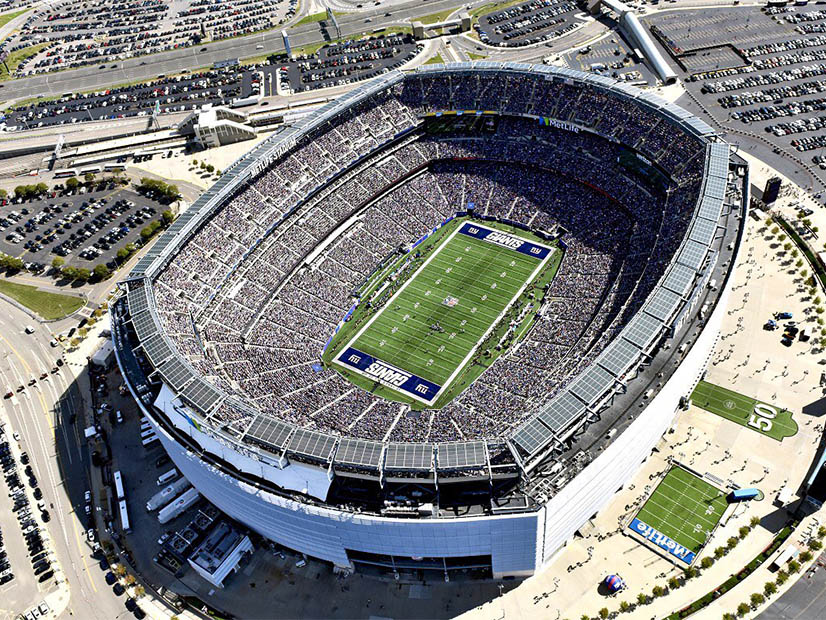
The startup G Force Waste Sorters is trying to disrupt the waste industry and reduce greenhouse gases by recovering high-value, post-consumer recyclables from trash at major sports and entertainment venues.
Michelle Guiney, president of Massachusetts-based G Force, pitched the startup Wednesday at a virtual event for the Cleantech Open Northeast accelerator program, answering the question, “Why venue trash?”
Between 40 and 50% of trash at large event venues is recyclable and 20 to 30% is compostable, according to Guiney.
“To exponentially increase the volume of trash sorted, I designed a mobile mechanical waste-sorting system that will be able to defer up to 80% of the venue trash from landfill or incineration,” she said.
For context, she added, one venue with a seating capacity of 40,000 generates about 1,200 tons of trash annually. G Force could recover 600 tons of recyclables and 360 tons of compostables from the facility’s annual waste while also helping avoid 2,300 metric tons of carbon dioxide (MTCO2).
“It’s an unprecedented environmental benefit for just one venue,” Guiney said.
An Outdoor Media Buyers ranking of U.S. arenas and stadiums includes 141 facilities with seating capacities between 40,000 and 107,000, putting the minimum emissions avoidance potential for the G Force business model in those locations around 325,000 MTCO2/year. The yearly avoided emissions could equate to removing 71,000 internal combustion engine passenger vehicles from the road, based on EPA vehicle emissions estimates.
The anticipated environmental benefits of G Force’s business are what technology accelerator Cleantech Open looks for in companies applying to become a new cohort member. With the support of sponsors, the Northeast arm of the national program works in partnership with the Northeast Clean Energy Council to help early-stage startups that have an environmental focus.
Companies chosen for a cohort receive training, mentorship, investor connections and opportunities to compete for cash prizes.
The mentoring part of the program is a “great process” for mentor and mentee, said Mark Dockser, professor of practice at Northeastern University’s D’Amore-McKim School of Business, and a Cleantech Open mentor.
“For the mentors, it’s a chance to meet and work with some great folks who have very similar interests and different expertise,” Dockser said during the event Wednesday. “For the mentees, it’s a chance to learn to analyze, to vet ideas, to do some problem solving … and get to market to find some of the right partners.”
Mentors for cohort members match the specific needs of the startup business model, according to Andrew Myers, professor of civil and environmental engineering at Northeastern. Myers and Jim Papadopoulos, a senior research engineer at Northeastern, won the 2020 Cleantech Open NE for their startup T-Omega Wind.
The team won for a redesigned floating offshore wind turbine that could reduce material costs and simplify manufacturing.
“The go-to-market strategy that we conceived of as part of the Cleantech Open in 2020 is the one that we are now fleshing out and including in our pitch deck for investors the spring,” Myers said during the event.
Startup applications for the 2022 Northeast cohort are due April 17. The administrators will select cohort members in May and announce program winners at an event in September, when the cohort’s top startups will have a chance to pitch in a public form.


